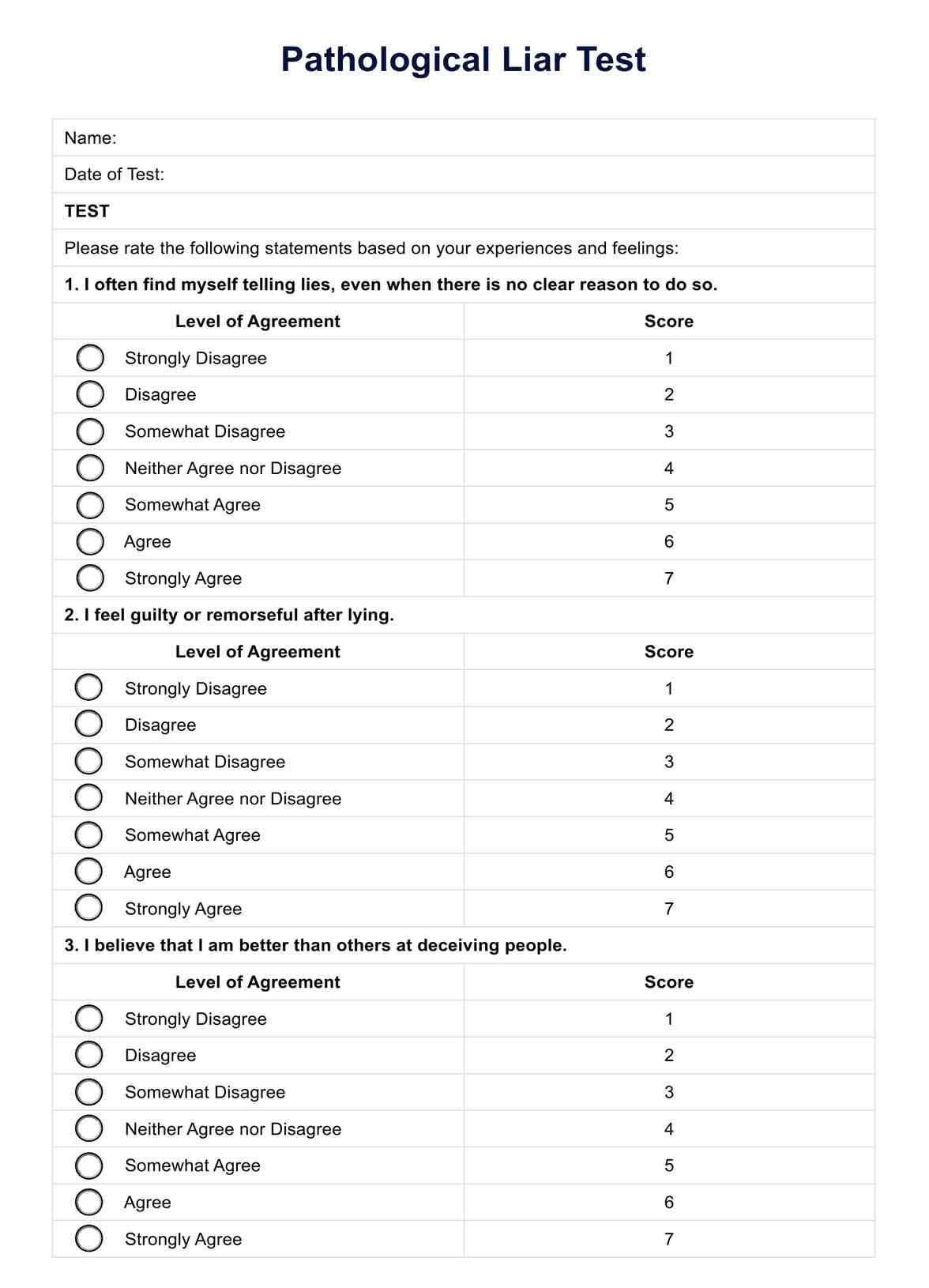Various mental illnesses, such as antisocial personality disorder, narcissistic personality disorder, and borderline personality disorder, may be associated with pathological lying behavior.

Pathological Liar Test
Take a pathological liar test and explore examples to understand this behavior better. Download Carepatron's free PDF for further information and insights.
Use Template
Pathological Liar Test Template
Commonly asked questions
The root cause of pathological lying can vary and may include factors such as underlying psychological issues, childhood trauma, low self-esteem, or a history of interpersonal conflicts.
While compulsive and pathological liars engage in habitual lying behavior, compulsive liars may lie impulsively without much forethought. In contrast, pathological liars may lie for complex reasons and exhibit a lack of remorse or guilt.
EHR and practice management software
Get started for free
*No credit card required
Free
$0/usd
Unlimited clients
Telehealth
1GB of storage
Client portal text
Automated billing and online payments











